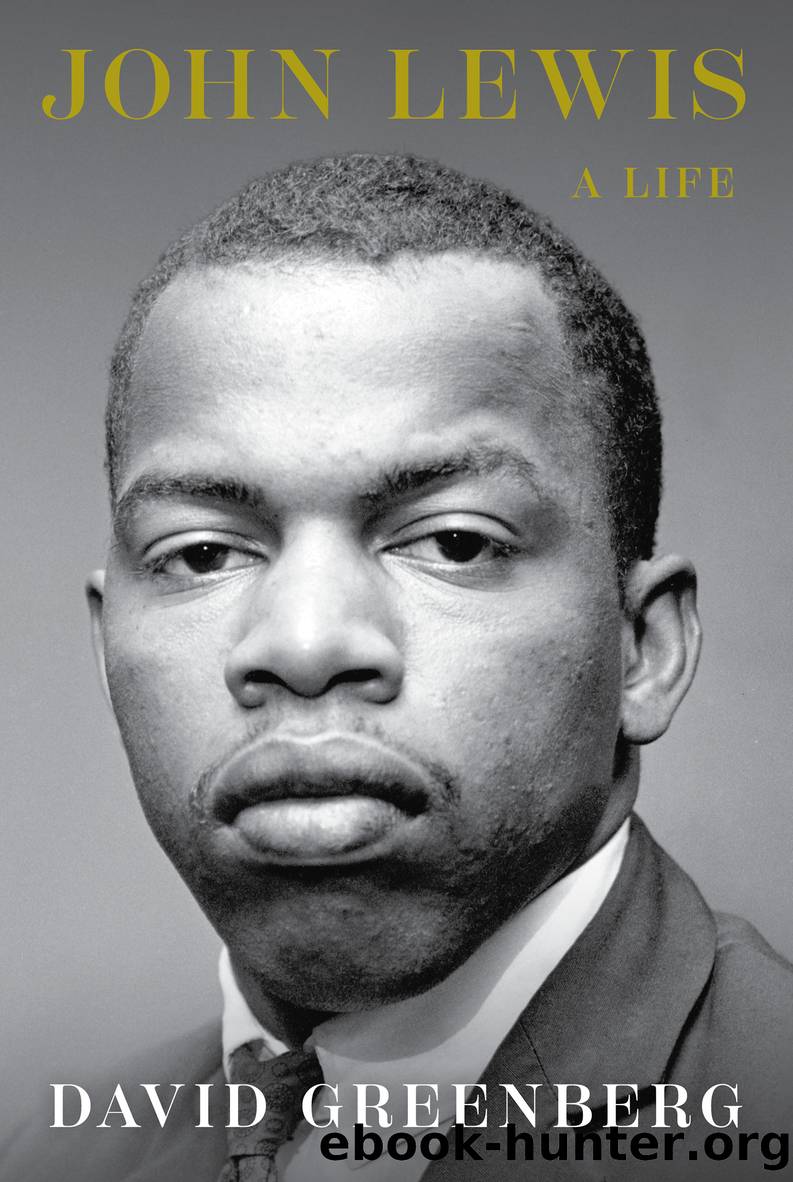John Lewis by David Greenberg

Author:David Greenberg
Language: eng
Format: epub
Publisher: Simon & Schuster
Published: 2024-10-08T00:00:00+00:00
* * *
In any case, there were other issues. Lewis and Bond held similar positions on most political matters, but they were not identical. Although both men had ties to Atlantaâs Jewish community, Bond had on occasion run afoul of Jewish opinion. Though he affirmed Israelâs right to nationhood, he had at times described himself as âanti-Zionistââa term that most Jews equated with enmity toward the Jewish state. At other times, he minimized the anti-Semitism in Black radical circles. Some of Bondâs Jewish friends were taken aback by his ignorance of the issues, such as not knowing that Arab citizens voted in Israeli elections. Once, when a local American Jewish Committee chapter invited Bond to speak about Israel, he showed up at the synagogue with some swaggering militant types, turning what had been meant as a conciliatory gesture into a divisive one.23
Lewis, by contrast, always showed heartfelt sympathy for the concerns of Atlantaâs Jews. He helped set up a program for Black and Jewish teens where each group would listen to and learn about the otherâs experiences. âWeâd split into groups, Black and Jewish, and anonymously write down questions for the other group,â said Sherry Frank, who was involved. âSometimes it would be tenseâon Israel, South Africa, Jesse Jackson.â Blacks might ask Jews why they talked so much about the Holocaust; Jews might ask Blacks if they felt they benefited unfairly from affirmative action. The process bred mutual understanding. Lewis liked the exercise because it promoted the kind of community he remembered from Nashville. âJohn was always there,â Frank said. âSometimes heâd come in a tuxedo because heâd been speaking at a gay rights dinner. Sometimes heâd come in jeans because he was coming from home. Iâd tell him he should go home to Lillian, but heâd stay.â24
Lewis also maintained special ties to the gay and lesbian community. In the mid-1980s, the cause of equal rights for gays and lesbians was still highly controversial, and even some liberals kept their distance. For Gay Pride Month, in June, Andrew Young would issue a generic statement on behalf of civil rights for all. But Lewis âgreeted the gay lobby more enthusiastically,â the Journal-Constitution reported. âIt isnât easy to be gay, particularly in the South,â Lewis said to a Gay Pride gathering.25
The churches, too, especially Black churches, steered clear of gay rights. Relatively few Black men and women were out of the closet. According to Dave Hayward, a white gay activist and journalist, most visible movement leaders at the time were white. âA very good friend running for the Atlanta City Council told me that he went to a party, and it was basically Black gay men. He said, âDave, I was just totally astonished. All these guys they have wives and daughters and girlfriends, and theyâre all on the down-lowââââa phrase referring to the secretive lives of Black gay or bisexual men.26
Lewis never worried that his outspokenness on the issue would hurt him with churchgoing voters, Black or white. âHe wanted people
Download
This site does not store any files on its server. We only index and link to content provided by other sites. Please contact the content providers to delete copyright contents if any and email us, we'll remove relevant links or contents immediately.
The Secret History by Donna Tartt(19085)
The Social Justice Warrior Handbook by Lisa De Pasquale(12190)
Thirteen Reasons Why by Jay Asher(8909)
This Is How You Lose Her by Junot Diaz(6885)
Weapons of Math Destruction by Cathy O'Neil(6279)
Zero to One by Peter Thiel(5801)
Beartown by Fredrik Backman(5751)
The Myth of the Strong Leader by Archie Brown(5507)
The Fire Next Time by James Baldwin(5442)
How Democracies Die by Steven Levitsky & Daniel Ziblatt(5218)
Promise Me, Dad by Joe Biden(5153)
Stone's Rules by Roger Stone(5087)
A Higher Loyalty: Truth, Lies, and Leadership by James Comey(4960)
100 Deadly Skills by Clint Emerson(4924)
Rise and Kill First by Ronen Bergman(4788)
Secrecy World by Jake Bernstein(4752)
The David Icke Guide to the Global Conspiracy (and how to end it) by David Icke(4717)
The Farm by Tom Rob Smith(4507)
The Doomsday Machine by Daniel Ellsberg(4490)
